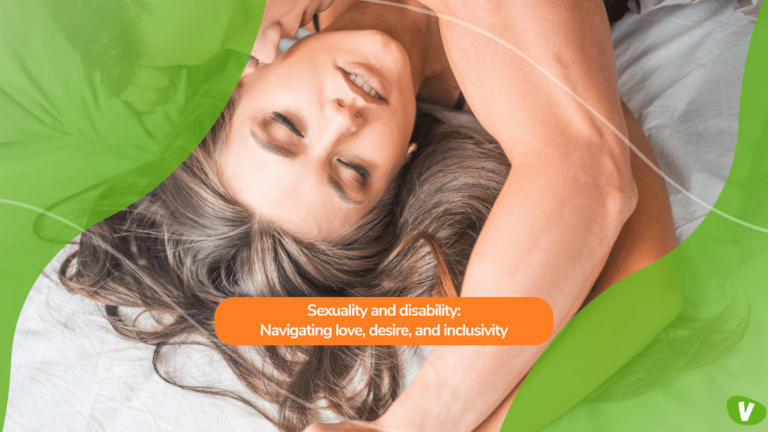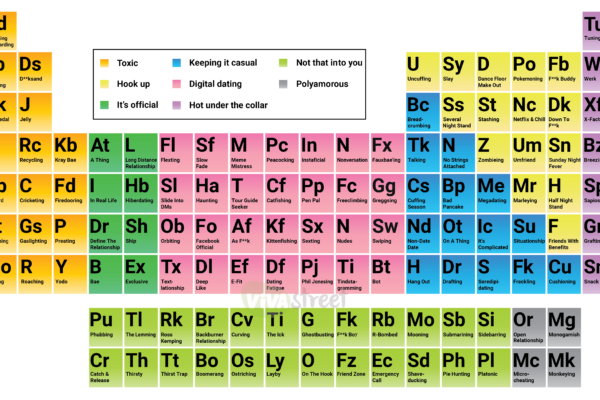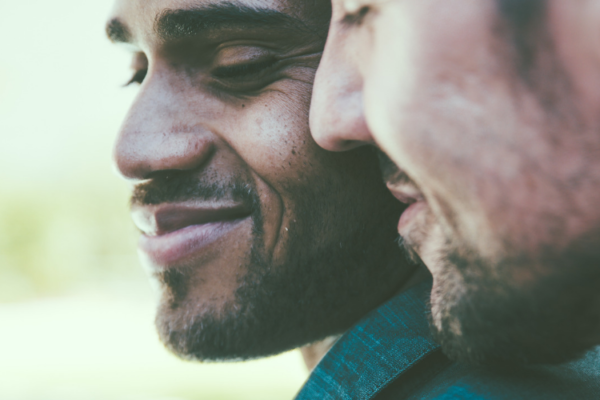Sex is a part of most of our everyday lives. However, it isn’t the same for everyone.
People with difficulties may want to approach sexuality differently. When fostering a relationship with someone with a medical or neurological condition, it’s important to consider different approaches to sexual interactions.
- Understanding sexuality for people with disabilities
- Tips for exploring sexuality with a disabled person
- The takeaway
So, let’s dive in and talk about exploring sexuality with people with disabilities and how you can do it safely and respectfully.
Understanding sexuality for people with disabilities
People with physical disabilities already live their lives in a unique way. While physical disabilities can vary greatly, there’s no denying that people with disabilities need to take a different approach to everyday tasks – and yes, that includes sex.
But again, sex and sexuality for people with disabilities are different for every individual.
Just because certain people share disabilities doesn’t mean they share the same sexual preferences. So, when trying to understand and explore the sexuality of people with disabilities, you must understand that everyone is different. This is why you have to take the time to understand their needs and the barriers they face due to their disability and approach it in a way wherein the person feels safe and comfortable.
On top of that, disabilities take different shapes and forms. While some people may have a harder time exploring their sexuality due to physical disabilities, others may find it hard due to mental disabilities. For example, people with autism may be sensitive to touch in some places, which is why their sexual partners must take extra care to understand these sensitivities and make the necessary adjustments.
That said, there’s no standard set of steps for sexual encounters with disabled people.
To start exploring sexuality with a disabled person, it’s best to establish an open line of communication. Both you and your partner shouldn’t be afraid to ask questions, express thoughts and feelings, and be sure that you won’t be judged for what you say.
When discussing sexuality and sexual needs with a person, it’s best to start slow. Just like everyone else, not every person with a disability will be ready to talk openly about sexuality right away. So, be patient when opening up the topic and respect the person’s boundaries, especially when it comes to what they want to talk about and the topics they would rather avoid.

Tips for exploring sexuality with a disabled person
Whenever you explore sexuality with a person, whether or not they have a disability, it’s best to listen, observe their needs, and react as necessary. Everybody’s sexual needs and preferences are different, and it’s important to understand that before going any further.
That said, there are some tips that apply to anyone exploring sexuality with a disabled person. To better equip you for the task, we’ve listed down a few of the most important ones in the list below:
ASK, don’t assume
The very first tip we can give you, and one you must keep in mind at all times, is always to ask and never assume. This is a common tip to remember whenever speaking with or interacting with a person with a disability. As an able-bodied individual, there’s no way to understand the experiences of people with disabilities fully. In fact, everyone’s experience with disabilities is so unique that no two people have the same experience, even if they have the same physical or mental disability.
So, never assume anything when it comes to a disabled person and their sexuality. Don’t assume the things they like and what they won’t like. Instead, feel free to ask them openly and without judgment. When you establish a sense of trust and open communication with the person, they should feel safe and comfortable talking about these things with you.
If the person isn’t keen on sharing something, however, don’t be offended. It’s important to respect the person’s boundaries as there may be some things they may not be comfortable discussing right away. That way, you get to learn about their preferences at a pace with which everyone is comfortable.
Respect their autonomy
Another very important thing to remember is to respect the person’s body autonomy. Each individual has full autonomy over their body and should be able to make decisions for themselves. Whatever decision the person makes regarding how and when they would like to explore their sexuality, it’s critical for you to understand and respect that. No one else should have control over your body except yourself, and that goes for every person.
Encourage open communication
The best way to build a satisfying sexual relationship with a disabled person is to talk about your needs and feelings. This is why you should prioritise establishing open communication between the two of you. Neither of you should be shy or scared to share your thoughts and feelings, and there should never be judgment when sharing things with each other. That way, you can form a stronger and more satisfying relationship.
Remember – there’s a deep connection between sex and mental health. This is why it’s critical to consistently speak with your partner about your sexual needs and theirs to ensure that both parties make an effort to satisfy the other.

Do the research
There are countless places to find information on sexuality for people with disabilities. We live in the age of the internet, so all the information you would need to know about sexuality for people with certain disabilities should be readily available. While we encourage asking questions and never assuming, doing the research yourself shows that you care and are willing to put in the effort to build a safe, satisfying, and comfortable sexual relationship between you and your partner.
Talk about the barriers
Those with disabilities face many barriers when it comes to sexuality. This ranges from the physical and mental barriers that prevent them from experiencing and performing sexual acts the same way those without disabilities all the way to difficulty in receiving sexual and reproductive healthcare. If you’re building a sexual relationship with someone, we highly recommend discussing these barriers openly from the very start.
This allows you to address certain issues right away before they can cause any discomfort in the bedroom. Also, it helps establish open communication early on, which is essential in these relationships.
Let them take the lead
Disabled people understand their body and how it works. So, when having sexual relationships with people with disabilities, don’t hesitate to hand them the reigns and let them show you the most satisfying and comfortable way to explore their sexuality.
Understand the importance of intimacy
Lastly, we can’t stress enough how important intimacy is in these relationships. For many people, a satisfying relationship doesn’t have to involve sex. Instead, the satisfaction comes from a deep physical and emotional connection that the two of you can form. It’s critical to understand this before developing a relationship.
The takeaway
Exploring sexuality with a disabled partner is very different from doing the same thing with able-bodied individuals. However, with the right effort and mindset, not only is it possible, but it can be a fulfilling experience for everyone involved.





